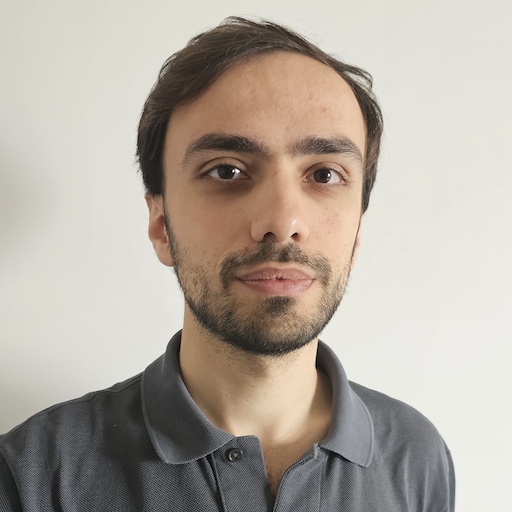I'm a Flatiron Research Fellow
at the
Flatiron
Institute, and working in the
Foundation Models for Science
initiative. My current research interests lie at the intersection of physics
and machine learning. In my research, I have been investigating how
machine learning techniques can be used to support scientific
discovery, exploring how a future "Artificial Scientist" could
automatically learn from observations, understand relevant concepts,
build new physical models and design new experiments similar to how
human scientists do. I received my Ph.D. in Physics from the Friedrich-Alexander
Universität in Erlangen, Germany, in association with the Max Planck
Institute for the Science of Light. In the past, I earned my B.Sc. and
M.Sc. degrees in Physics at Sapienza University of Rome, Italy,
focusing on the statistical physics of spin glasses.
Research
Polymathic AI
Currently, I am working on large foundation models for scientific
data in the
Polymathic AI
team. We are exploring how to leverage scientific data from
multiple sources to build AI models more generally suited for
scientific applications. Please, refer to the group's website for
the latest news about our efforts!
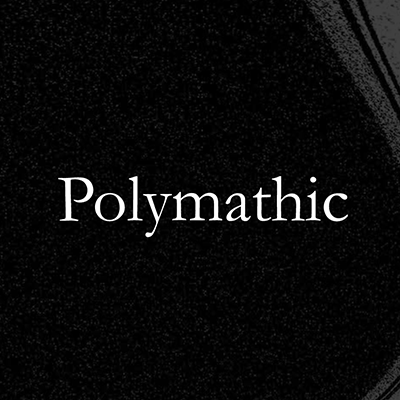
Below are some additional topics of my research:
Extraction of collective variables
One of the most useful concepts in physics is the notion of
collective coordinates. However, it is not clear a-priori which
low-dimensional function is best suited as a compact description
of the high dimensional data. We investigated a technique to find
these quantities based on their information content. We
generalized the idea of mutual information, a solid concept in
information theory, to work for this purpose, i.e. to quantify the
amount of information between a random variable and a
deterministic continuous function of it. In addition, we showed
that it may be possible to also automatically extract collective
variables by parametrizing features and optimizing over the
parameters.
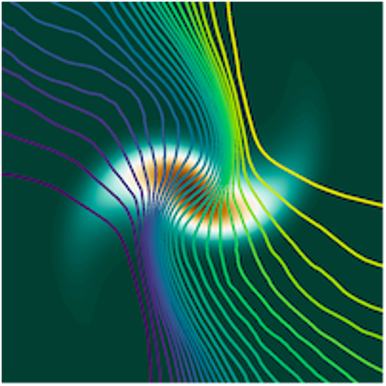
Bayesian Experimental Design and Active Learning
Bayesian experimental design allows to efficiently select
measurements to characterize a physical system, by maximizing the
expected information gain. Recent developments in deep neural
networks and normalizing flows allow for a more efficient
approximation of the posterior and thus the extension of this
technique to complex high-dimensional situations. We investigated
how this approach holds promise for adaptive measurement
strategies to characterize present-day quantum many-body
platforms. We focused on arrays of coupled cavities and qubit
arrays, which both represent model systems of high relevance for
modern applications, like quantum simulations and computing, and
both have been realized in platforms where measurement and control
can be exploited to characterize and counteract unavoidable
disorder.
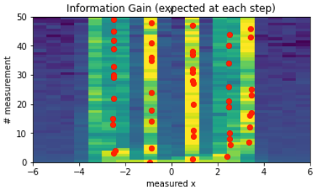
Discovering quantum circuit components with program synthesis
Despite rapid progress in the field, it is still challenging to
discover new ways to take advantage of quantum computation: all
quantum algorithms need to be designed by hand, and quantum
mechanics is notoriously counterintuitive. We studied how AI, in
the form of program synthesis, may help to overcome some of these
difficulties, by showing how a computer can incrementally learn
concepts relevant for quantum circuit synthesis with experience,
and reuse them in unseen tasks. In particular, we focused on the
decomposition of unitary matrices into quantum circuits, and
showed how, starting from a set of elementary gates, we can
automatically discover a library of new useful composite gates and
use them to decompose more and more complicated unitaries.
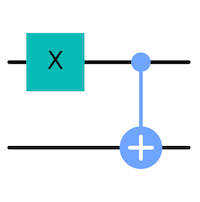
Exploration in Reinforcement Learning
Scientists are agents that performs experiments to improve their
model of the world. Their reward is mainly due to the observation
of some new phenomenon and the improvement of their scientific
model. In Reinforcement Learning, a similar situation happens when
the reward is sparse, and it is useful to design strategies to
explore the environment independently. Curiosity-driven and
novelty-based techniques allow to intrinsically motivate the agent
to explore the environment, in a similar way as a human scientist
would do. We developed a particular novelty-based techniques,
suitable for challenging exploration tasks like 3D-environments
and Atari video games.

Some less recent work:
Device-independent tests of quantum channels
The device-independent approach for the characterization of a
quantum system allows to draw conclusions about a system without
the need of a precise knowledge of the measurement apparatus. We
showed an implementation of this framework for the
characterization of a quantum channel in a photonic setup.
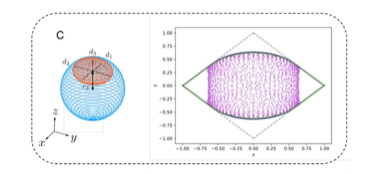
Finite-size corrections to the mean-field spin glass
Finite-size corrections to the free energy of the
Sherrington-Kirkpatrick spin glass in the low-temperature phase
are a long-standing and still open problem. We investigated the
role of one contribution to these corrections, the so-called
longitudinal fluctuations, and determined its scaling exponent
both with an analytical and numerical approach.
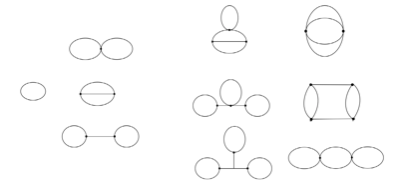
Papers
-
Leopoldo Sarra, Florian Marquardt
"Deep Bayesian Experimental Design for Quantum Many-Body
Systems"
Machine Learning: Science and Technology 4 (4) 045022
arXiv
DOI
-
Leopoldo Sarra, Kevin Ellis, Florian Marquardt
"Discovering quantum circuits components with program
synthesis"
arXiv
-
Alaa Saade, Steven Kapturowski, Daniele Calandriello, Charles
Blundell, Pablo Sprechmann, Leopoldo Sarra, Oliver Groth, Michal
Valko, Bilal Piot
"Unlocking the Power of Representations in Long-term
Novelty-based Exploration", The Twelfth International Conference on Learning Representations (ICML
2024). Spotlight paper.
arXiv
OpenReview
-
Leopoldo Sarra, Andrea Aiello Florian Marquardt
"Renormalized Mutual Information for Artificial Scientific
Discovery"
Physical Review Letters 126 (20), 200601
arXiv
DOI
-
Iris Agresti, Davide Poderini, Gonzalo Carvacho, Leopoldo Sarra,
Rafael Chaves, Francesco Buscemi, Michele Dall’Arno, Fabio
Sciarrino
"Experimental semi-device-independent tests of quantum
channels"
Quantum Science and Technology 4 (3), 035004
arXiv
DOI
-
Giorgio Parisi, Leopoldo Sarra, Lorenzo Talamanca
"Study of longitudinal fluctuations of the
Sherrington–Kirkpatrick model"
Journal of Statistical Mechanics: Theory and Experiment 2019
(3), 033302
arXiv
DOI
Talks
-
Decomposing Quantum Unitaries into Circuits with Program
Synthesis, APS March Meeting 2023, March 6th, 2023, Las Vegas,
United States
-
Renormalized Mutual Information for Artificial Scientific
Discovery, Machine Learning at Galileo Galilei Institute
Workshop & Conference, September 9th, 2022, Florence, Italy
-
Renormalized Mutual Information for Artificial Scientific
Discovery, Origins Data Science Labor Forum, June 17th, 2022,
Munich,Germany/Online
-
Renormalized Mutual Information for Artificial Scientific
Discovery, Learning to Discover workshop, April 28th, 2022,
Paris/Online
-
Deep Bayesian Experimental Design for Quantum Many-Body Systems,
APS March Meeting 2022, March 16th, 2022, Chicago, United States
-
Unsupervised feature extraction in simple Physical Models
through Mutual Information Maximization, GDS Virtual Session - Deep Learning in Physics Short Talks,
May 8th, 2020, Online
-
Towards Artificial Scientific Discovery, IMPRS Annual Meeting
and Autumn Academy 2019, October 8th, 2019, Hersbruck, Germany
-
Study of Longitudinal Fluctuations of the
Sherrington-Kirkpatrick spin glass, APS March Meeting 2019,
March 7th, 2019, Boston, United States
Software
I usually commit to open source the research code. Please visit my GitHub page for the updated list.
| Name |
Description |
| Polymathic AI |
In this repository, we release the code of the Foundation Models for Science projects and related works
|
| unitary-synthesis |
Discovering quantum circuit components with program synthesis
|
| active-learning |
Bayesian experimental design for quantum many-body systems
|
| rmi |
Renormalized mutual information for artificial scientific discovery
|
